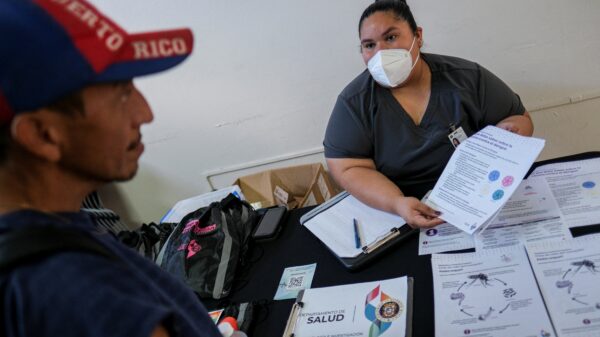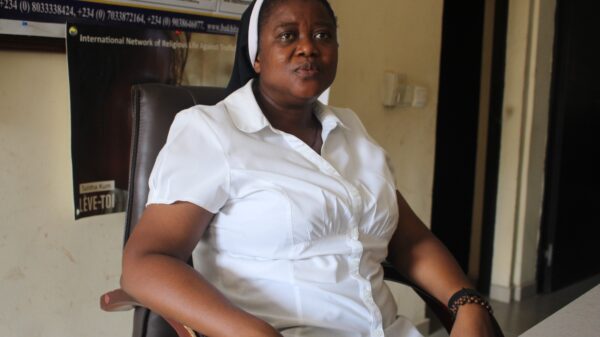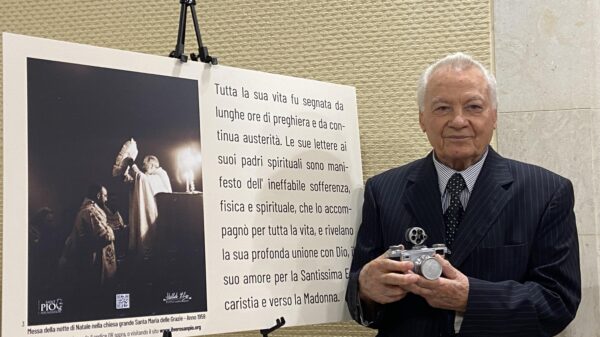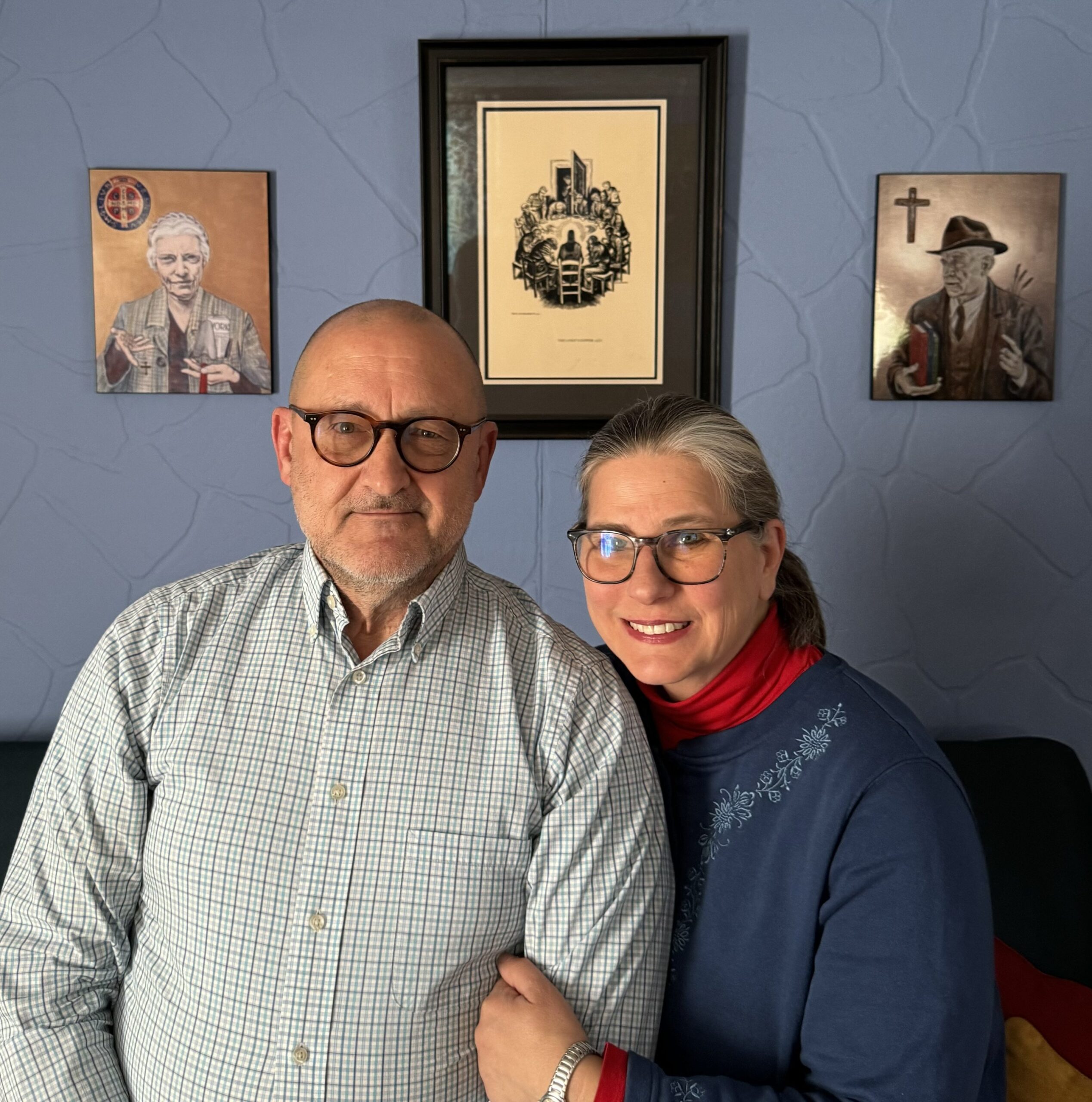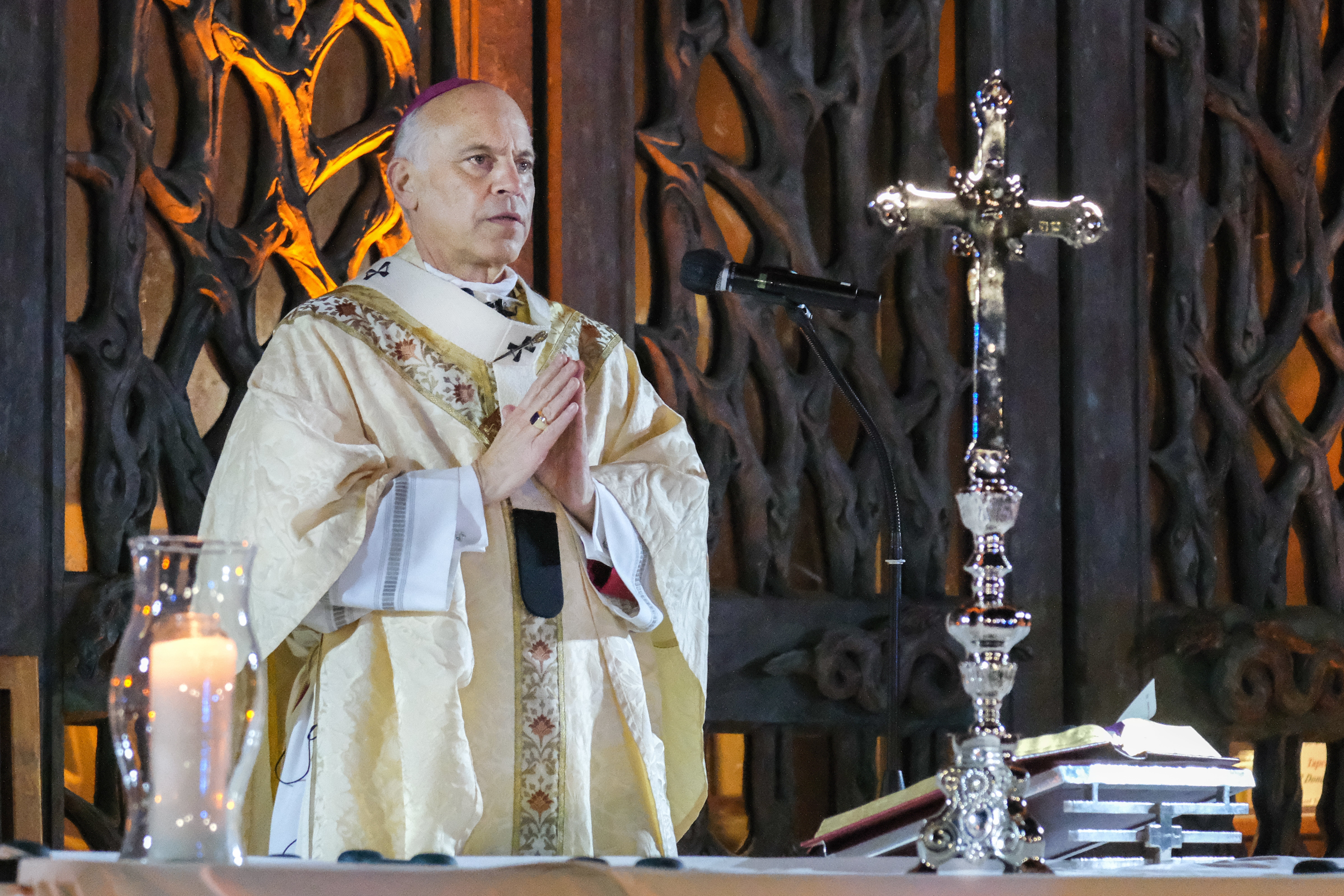(OSV News) — Life on a small organic farm in northeastern Pennsylvania in the cool early days of spring, adapting to the rhythms of planting, livestock care and chores, can sound blissful to anyone buffeted by adult pressures and responsibilities.
Carmina Chapp hopes you think that. Because she does, too, and she believes a quiet pastoral setting helps deepen your faith.
Her big moment of discernment came while reading the 1952 autobiography of Dorothy Day, “The Long Loneliness,” which asserts that respite from life’s losses can be found in service to others.
After trying to live her Catholic faith through the examples of saints, priests and women religious, but not finding inspiration in long-ago figures, Chapp read Day (1897-1980), the co-founder of the Catholic Worker Movement and still very much a contemporary figure. She realized, “This is it.”
Chapp, a Catholic theologian with degrees from Providence College and Duquesne University, is the founder of the Dorothy Day Catholic Worker Farm near the borough of Harveys Lake, Pennsylvania, near Scranton. Her husband, Larry Chapp, a retired theology professor who taught for 20 years at DeSales University, creates podcasts and blog posts under the title “Gaudium et Spes” (“Joy and Hope”).
The Chapps, Oblates of St. Benedict, established the farm in 2013 with the goal of providing food for people in need served by soup kitchens and food pantries as well as a place of contemplation for visitors encouraged to follow a Benedictine spirituality.
She touted the farm at a March 20 webinar sponsored by the Minnesota-based Catholic Rural Life.
“It’s amazing. It’s a wonderful, peaceful life,” Chapp said.
It came about after she and her husband prayed the Liturgy of the Hours, also known as the divine office, and found an identical discernment: “We need to simplify our lives” and “we need to feed people.”
The farm exemplifies the dignity of work — to “live by the labor of their hands” — as referenced in Chapter 48 of the Rule of Benedict, produced in the year 530.
“We’re in the mindset of we want to glorify God in our work now,” Chapp said. “Voluntary poverty, it’s called. We’re intentionally living as simple a life as we can, so we just don’t need very much.”
The Chapps, assisted by volunteers, raise produce — tomatoes, peppers, potatoes, cabbages, cucumbers — and tend to chickens for the eggs, goats for the milk, and sheep for the wool, on eight of the property’s 11 acres.
As a noncommercial operation, the farm operates on a modest budget. A recent capital campaign raised $15,000, enabling the farm to meet annual expenses and buy a new goat milking shed as well as animal feed, and meet the cost of sheep shearing. Chapp processes the wool herself.
“It’s not a huge enterprise, but it’s big enough for us,” Chapp said. “I think our bigger mission is evangelization. It’s a place to show that it’s possible to follow God’s will. He won’t let you down.”
Although visiting volunteers are always welcome, there are no overnight accommodations on the farm, making day trips currently the easiest way to participate.
But the Benedictine virtue of hospitality comes into that as well. “It takes a lot of energy to host people and visit with people, but it’s brought us a lot of blessings,” she said.
“If we all answered the call of what God asked us to do, the world would work perfectly,” she added.
Chapp said the operation also is an example of Catholic social teaching in action.
Critics think “it’s sort of a modern thing” with its emphasis on social justice, but, she points out, it’s rooted in the 1891 encyclical by Pope Leo XIII, “Rerum Novarum” (“On Capital and Labor”), and it’s simply “the Gospel in action.”
“It’s actually a pretty intentional way the church deals with modern situations, particularly economic situations,” she said.
And it offers an important perspective.
“The world may tell you (that) you have to work 60 hours a week to make money, to get your promotion.” Chapp said. But this doesn’t answer the question, “Does this build the kingdom of God?”
In addition, the constant pressure of work can mean, “I’m not doing what my family really needs, which is my presence,” she said. Farm life, in which the chief pressure is always the weather, provides “so many opportunities to surrender to God’s will.”
As for Dorothy Day, her sainthood cause, launched in 1997 but officially opened in 2000, has been slow in making progress. In November, Msgr. Maurizio Tagliaferri was appointed by the Dicastery for the Causes of Saints as the relator for her cause. If the summary of her life of heroic virtue is accepted, she will be declared “venerable.” After that, evidence of two miracles attributed to her intercession is required for canonization. In general, one such miracle is required for beatification and a second one for canonization.
Kurt Jensen writes for OSV News from Washington.
More information about the Dorothy Day Catholic Worker Farm can be found at dorothydaycwfarm.org.




